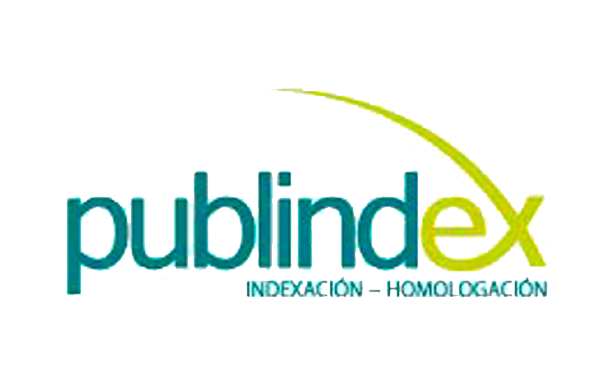Considerations on a methodological framework for the analysis of texts
Abstract
This article presents a review of relevant literature for the construction of a methodological framework for the analysis of texts in applied social sciences, such as economics, which we have supported in the main hermeneutical approaches from philosophy, linguistics and social sciences. In essence, they assume that every discourse carries meaning - be it truthful or not - and that they express complex social relations. Thus, any analysis of content happens finally to be a certain type of hermeneutics (interpretation), while trying to account for multiple phenomena immersed in the production, application, use and reproduction of knowledge within the text. When applying discourse analysis in teaching texts in economic sciences, we find traces of legalistic, political, ethnocentric tendencies, among other discourses hidden from the text. For this reason, the analysis of the internal discourse of the text allows us to delve inside the state ideology and its underlying or latent discourses.Downloads
References
Aristóteles (1998). Retórica. (Traducción: A. Bernabé). Alianza Editorial, Madrid.
Aristóteles (2011). Metafísica. (Traducción: H. Zucchi). Random House Mondadori, Buenos Aires.
Bajtín, M. (1975). Teoría y estética de la novela. Taurus, Madrid.
De Beaugrande, R. (1980). Text, Discourse and Process: Toward a Multidisciplinary Science of Texts. N.Y., Longman.
De Beaugrande, R. y Dressier, W. (1981). Introduction to text linguistics. KY, Longman.
Beuchot, M. (1999). Perfiles esenciales de la hermenéutica: hermenéutica analógica. Instituto de investigaciones filológicas. UNAM, México.
Bourdieu, P. (1995). Las reglas del arte. Anagrama, Barcelona.
Bradac, J. (1999). Language and social interaction: nature abhors uniformity. En: Research on language and social interaction, Nº 32: pp.11-20.
Bradac, J. (2002). Extending the domain of speech evaluation: message judgment. En: P. Glenn, C. LeBaron and J. Mandelbaum (Eds). Studies in language and social interaction: in honor of Robert Hopper (pp. 45-56). Lawrence Arlbaum Associates, Mahwah, NJ.
Fairclough, N. (1989). Language and power. Longman, London.
Fairclough, N. (1992). Discourse and social change. Polity Press, Cambridge.
Freud, S. (2004). La Interpretación de los Sueños. Alianza Editorial, Madrid.
Goldman, L. (1968). El hombre y lo absoluto. Ediciones Península, Barcelona.
Habermas, J. (1997). Conocimiento e Interés. Ed. Taurus, Madrid.
Hart, C. (2007). Critical discourses analysis and metaphor: toward a theorical framework. University of Hertfordshire. Disponible en: http://uhra.herts.ac.uk/bitstream/handle/2299/4862/901192.pdf?sequence=1
Heidegger, M. (2000). Ontología: hermenéutica de la facticidad (Traducción: J. Aspiunza). Alianza Editorial, Madrid. (13 Sesiones de Lecciones en Friburgo, 1923).
Herrero, J. (2002). Documento de trabajo. Consultar en: http://www-01.sil.org/training/capacitar/antro/estructuralismo.pdf
Iser, W. (1987). El acto de leer. Taurus, Madrid.
Kedar, L. (Ed.) (1987). Power through discourse. Ablex, Norwood, NJ.
Kramarae, C., Schulz, M. y O’Barr, W. (1984). Language and power. Sage publication, Beverly Hills, California.
Kress, G. (1985). Linguistic processes in sociocultural practice. Deakin University Press, Victoria.
Levi-Strauss, C. (2006). Antropología estructural: Mito, sociedad, humanidades. México: Ediciones Siglo XXI.
López, E. (1963). El análisis de contenido, fundamento socio-cultural. En: J. Ibáñez (Coord.), El análisis de la realidad social. Métodos y técnicas de investigación (461-493) Madrid: Alianza Editorial.
Moreno, S. (2007). Textos y sociedades: didáctica para un análisis contextual de los documentos. Facultad de educación, Pontificia Universidad Javeriana, Bogotá.
Meyer, B. (1984). Dimensiones de texto y el procesamiento cognitivo. En: H. Mandl; N. L. Stein y T. Trabasso (Eds.). El aprendizaje y la comprensión de textos. Hillsdale. N.J: LEA.
Meyer, B. (1985). Análisis estructural de la prosa científica: se puede aumentar el rendimiento de resolución de problemas.
Roncancio, Ã. y Camargo, D. (2013). El texto inalterable, una mirada a la educación tradicional en la enseñanza de la contabilidad. Ponencia en III Encuentro Nacional de Profesores de Contaduría Pública, Cali – Colombia.
Rumelhart, D. (1977). Comprender y resumir historias breves. En: D. Laberge y S.J. Samuels (Eds). Los procesos básicos en la lectura: Percepción y comprensión. Hillsdale, N. J.: LEA.
Thorndyke, P. (1977). Las estructuras cognitivas en la comprensión y la memoria del discurso narrativo. Psicología Cognitiva.
Van Dijk, T. (1989) La ciencia del texto. Un enfoque Interdisciplinario. Paidos. Barcelona.
Van Dijk, T. (1996). Análisis del discurso ideológico (Traducción: R. Alvarado). En: Revista Versión, UAM, Nº 6: pp.15-43.
Van Dijk, T. (2003a). Ideología y discurso. Editorial Ariel, Barcelona.
Van Dijk, T. (2003b). Racismo y discurso de las élites. Gedisa, Barcelona.
Van Dijk, T. (2005) Estructuras y funciones del discurso. Siglo XXI editores. México.
Vattimo, G. (1991) Ética de la interpretación. Paidos estudio. Barcelona.
Viloria, N. (2001) Epistemetodología de la ciencia contable en actualidad contable. En: Actualidad Contable, Universidad de los Andes (Venezuela), Vol. 4, Nº 4: pp. 63-71.
Wodak, R. (Ed.) (1989). Language, power and ideology. John Benjamins Publishing, Amsterdan.
Wodak, R. (1996). Disorders of discourse: speech barriers and sociolinguistics. Longman, London.
Wodak, R. (2011). The discourse of politics in action: politics as usual. Palgrave Macmillan, New York.
Wodak, R. y Meyer, M. (2003). Métodos de análisis crítico del discurso. Gedisa, Barcelona.
Creative Commosn Licence 4.0








